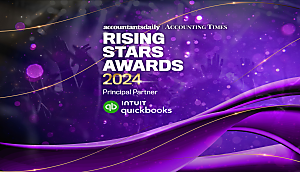The ATO will focus on bringing down “unacceptably high” levels of tax debt among smaller privately owned and wealthy groups this year, a deputy commissioner has said.
You’re out of free articles for this month
Deputy commissioner Louise Clarke said reducing the collectable debt book, which now sits at $50 billion, was a priority area in 2024 and would continue in 2025.
“One of the biggest challenges for us in 2025 is reducing the debt book,” Clarke said in a blog post on the ATO’s website.
“The level of outstanding debt is unacceptably high at the smaller end of the privately owned and wealthy groups market.”
“We’ll be focussing on getting debts paid and encouraging on-time lodgments.”
Privately owned and wealthy groups (POWG) operate some of Australia’s largest and most successful businesses and are classified by the ATO as companies and associated subsidiaries with a turnover over $10 million that are not public or foreign-owned.
Alternatively, they can be resident individuals who, together with their business associates, control over $5 million in net wealth.
They are divided into three segments based on size – Top 500, Next 5,000 and medium and emerging private groups – for the ATO’s tax performance programs.
The ATO’s focus on reducing debt levels for the POWG market reflects Commissioner Rob Heferen’s expectations, Clarke said.
She said Heferen, who was appointed to the role in March 2024, had “set out clear expectations for the ATO as an administrator”.
“We play a critical role collecting debt on behalf of government and have a responsibility to ensure a fair and level playing field,” she said.
“Balancing that role with ongoing empathy and support for people and their circumstances is a crucial part of our mandate.”
Clarke said the ageing demographics of taxpayers who controlled the groups were causing restructuring and disposal activity for succession planning and “tax risks”.
“In recent years we’ve observed an increase in reorganisations that appear to be connected to succession planning,” she said.
“A significant concern is where the restructure is cited as a reason for late lodgment.”
As a result, education campaigns would be a “critical” part of the private wealth division’s work in 2025.
“Within private wealth, we work across a broad spectrum of tax technical issues for a diverse population,” she said.
“The tax law – think Division 7A, small business tax concessions, CGT rules and provisions applying to trusts – are complex, particularly when they interact with each other.”
“The more that we can raise awareness of how these laws operate and how we administer these rules, the better the system will be.”
She said after the ATO’s Division 7A campaign achieved “great engagement” last year, it would be launching a similar webinar series focused on family trust distributions tax in 2025.
Clarke said the ATO was also currently reviewing the Top 500 program to identify additional measures to support groups to achieve “justified trust”, including whether the three-year monitoring period was appropriate.
It was also reviewing the entire privately owned and wealthy group population to consider whether expectations in areas like tax governance should be the same or whether a more tailored approach would be better.
 Login
Login







